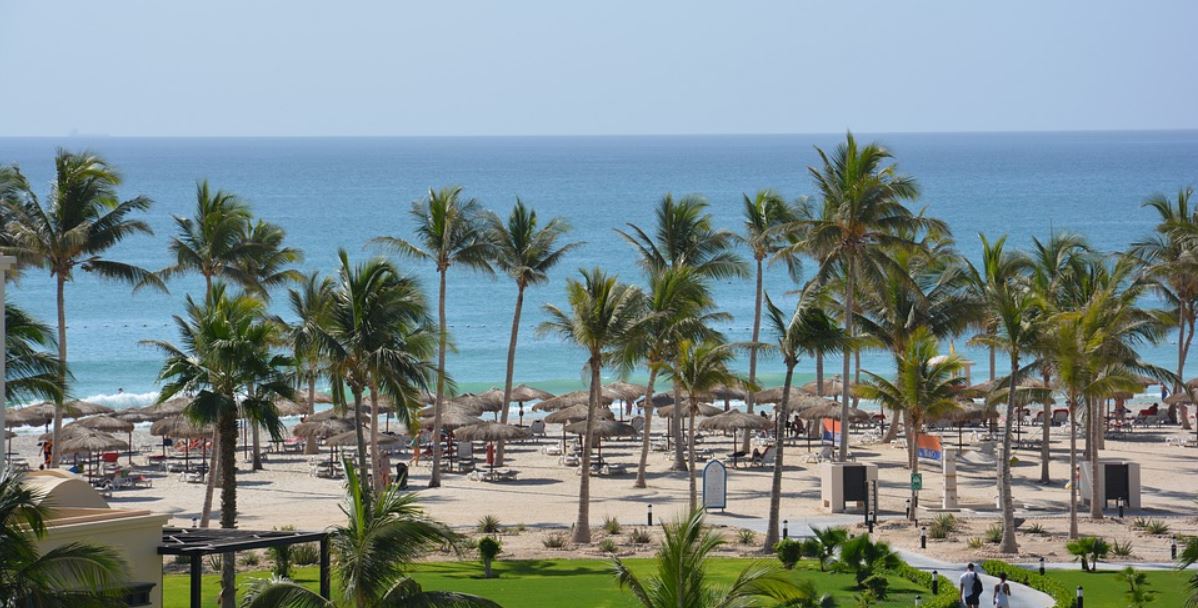Things to know before visiting Oman
East of the Arabian Peninsula, where the desert meets the Indian Ocean, is precisely where the Sultanate of Oman is. One of the few Middle Eastern nations with a high level of living and contemporary civilization that has not assimilated the Arab culture is Oman. Obtaining an Oman E-visa and visiting this lovely country is worthwhile because it is full of beautiful natural nooks. Do you remember where Oman’s capital is located?
It Is Muscat, an important port on the Gulf of Oman coast encircled by sand and hills. What is your knowledge of Oman? Maybe not much at all. But to have an outstanding experience in Oman, it is crucial to know a few facts before traveling there. Throughout this article, we’ll explain what you should know before visiting Oman, where you must go and what to see there. Let’s see what you should know before visiting Oman.
- Expect to explore the outdoors.
- English is frequently spoken.
- Recognize regional greetings
- Avoid drinking in public and refrain from acting intoxicated.
- Comply with the laws during Ramadan.
- To have a more satisfying experience, accept invites.
- Pay attention to weather forecasts.
- Avoid taking photos of military checkpoints or government buildings.
- Write down emergency phone numbers.
- Don’t discount hiking trails.
- Love for roads will not fade away.
The best activities in Oman are those that take place outside, such as strolls around tropical forests, tortoises laying their eggs on the beach, and water sports in flourishing coastal waters.
To travel to historic medieval forts, attractive coastal towns, stunning coastal lagoons, and lakes stashed away in the mountains; visitors will spend lots of time on highway journeys.
There are numerous options to go backpacking across the nation, which is permitted. A tent, a backpack, and outdoor space attire should be packed.
The official language is Arabic in Oman. In the towns and even to a great extent in places with tourist facilities, like the towns of Jebel Akhdar, English is frequently spoken. In addition to Arabic, you may also hear Kumari, Baluchi, Swahili, and—thanks to a significant immigrant population—Hindi, Kerala, and Urdu.
Omanis are known for their friendliness, hospitality, and politeness, and you can expect these traits to show in all of your interactions as a visitor. In Oman, all conversations—no matter how brief—between strangers or close friends must begin with a formal salutation, typically “as-salam Alaykum,” which means “peace be upon you.”
You may find that you are an object of a lot of attention in some areas of the country, as evidenced by looks in the way every several moments or inquiries about your origins. Don’t worry; Omanis genuinely care about guests and seek to make visitors feel at home.
Alcohol should only be taken in establishments with licenses, most of which are found in foreign hotels. It is unlawful to consume alcohol outside these places, and violators who behave dangerously while intoxicated or loudly may face legal consequences. Drug use is completely prohibited in Oman, and even minor drug offenses can lead to jail time, fines, and expulsion.
Throughout the month of Ramadan, while Muslims are fasting from dawn until dusk, keep in mind that non-Muslim visitors are not permitted to consume food or beverages, smoke, play loud music, or move in public areas throughout the day.
It Is acceptable to dine outside after the fast is completed following the sunset prayers, and Muslims settle down to iftar. Being modestly attired is especially important during the period of Ramadan.
It’s possible to pick up a few invites throughout your vacation to Oman because the people are warmly welcome and friendly to guests. Receiving these offers would only make your experience extra memorable, whether it’s to somebody’s home for a discussion over qahwa or dates, a group of acquaintances spending for your lunch at a restaurant, or a supper carried by primitive camping nearby.
Giving a visitor coffee involves respecting them, and receiving it shows that you’re doing the same. In Oman, qahwa is fermented with spice and rosewater and represented with dates, and caffeine is ground with seasonings like allspice and cardamom.
Heavy flooding is expected in cheap valleys, coastlines, and sandy deserts following significant rainfall. High ground is preferable for camping, and you should always examine the weather prediction and caution before you leave.
Tropical cyclones, most of which originate in the Arabian Sea, are becoming more likely due to the warming oceans, raising the risk of sea surges, damaging winds, floods, and collisions. Pay special attention to cyclone and storm warnings, and visit the Meteorology’s official website.
Some office buildings, guard posts, and combat equipment cannot be photographed or filmed in Oman, nor may you upload pictures or videos of them to social networking sites. Such behavior may result in fines and possibly incarceration. If in doubt, come down on the side of caution.
Call the Imperial Omani Police at 9999 if you require immediate rescue, transport, or medical attention.
Whether you’re trekking alone, consider your degree of health and prior alpine expertise, as well as the duration and complexity of the trek. Do not trek alone when you lack experience in challenging settings. Wear appropriate mountaineering boots, bring three liters or more water, and take a sun hat.
In addition to securely navigating you through the hills and troughs, hiking guides can provide knowledge of the local geology and the chance to communicate with locals who don’t speak English very well.
Discovering Oman’s breathtaking natural beauty is one of the main draws to this sizable nation. Buses connect Muscat with neighboring cities but don’t provide the mobility or access needed to see Oman’s stunning interior. We advise renting your car and hiring a group tour for the entire portion of your journey. Due to the Arabic and English text across all road signs, independent exploration is possible. A touring friend, though, can give insights and classified info. We strongly advise employing a guide if you are not an expert off-roader, particularly if you want to investigate the Wahiba Sands’ potentially endless dunes, but if you feel confident traveling alone.
Wrapping up
Oman is a beautiful place to visit, and you will learn a lot about culture and nature. Always check on the weather because it can be a worrying factor for you. It is advised to hire a local guide so that you can get a good experience on your trip.






